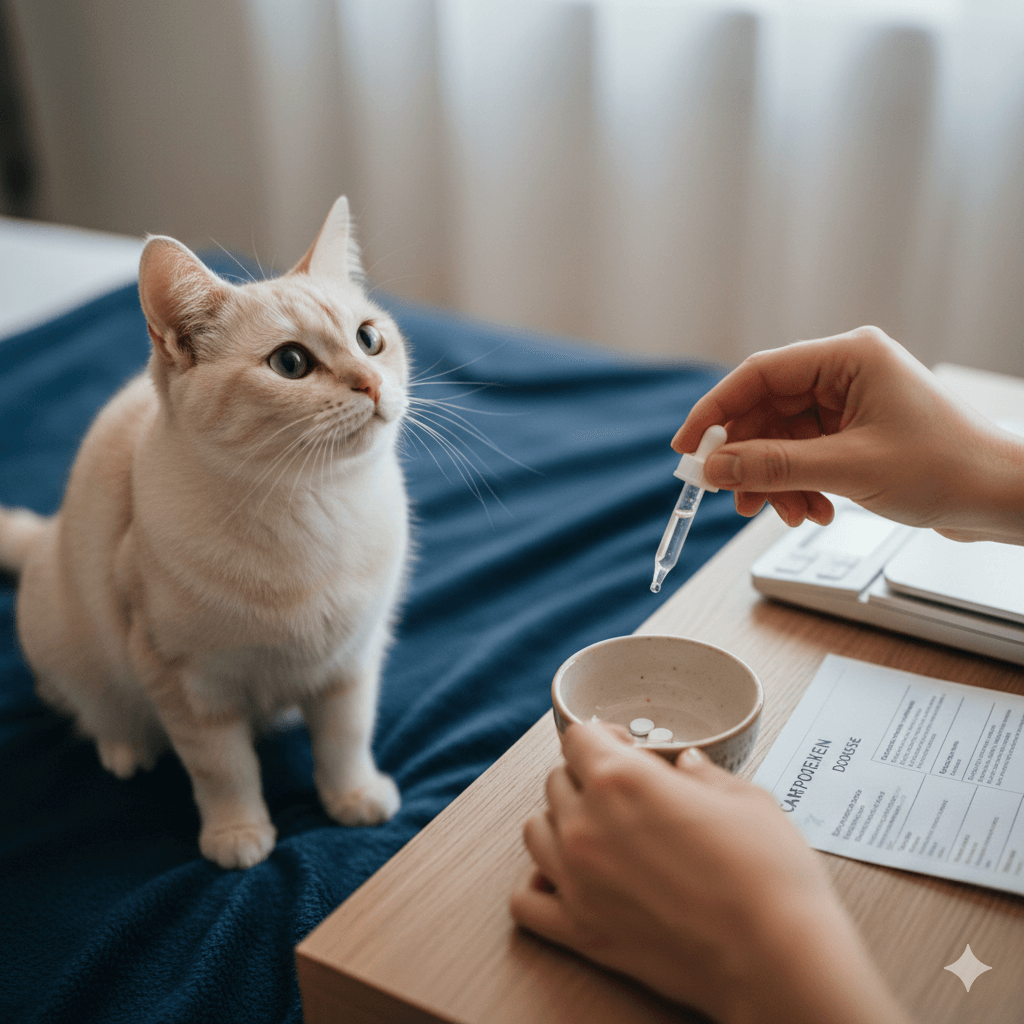Cat Behavior After Being Lost: What to Expect and How to Help
Losing a cat is one of the most distressing experiences for any pet owner. When your feline friend finally returns, you may notice changes in their behavior that leave you wondering what they endured during their time away. Cats are resilient creatures, but being lost—even briefly—can have a profound impact on their emotions and actions. Understanding these behavioral shifts is key to helping your cat readjust and feel safe again. In this blog post, we’ll explore the common behaviors cats exhibit after being lost, how to support them through recovery, and tips for preventing future incidents.
Common Behavioral Changes in Cats After Being Lost
When a cat returns home after an absence, it’s not uncommon for them to display noticeable changes in their demeanor. These behaviors often reflect their emotional state and adjustment process.
Increased Clinginess:
Some cats seek constant attention from their owners as a way to regain a sense of security and reassurance.Hiding or Avoidance:
Other cats may retreat to secluded spots, feeling overwhelmed or anxious about their recent experience.Changes in Appetite:
Stress can lead to either overeating or loss of appetite, depending on the individual cat’s coping mechanisms.Aggression or Irritability:
A previously calm cat might become more reactive due to lingering fear or confusion.Excessive Vocalization:
Cats may meow more frequently, signaling their need for comfort or expressing pent-up emotions.
These behavioral shifts are normal responses to trauma, and patience is essential while your cat regains trust and stability.
How to Support Your Cat’s Recovery
Helping your cat recover emotionally and physically requires a combination of care, routine, and understanding. Here are practical steps to guide them back to normalcy.
Create a Safe Space:
Set up a quiet area where your cat can relax without disturbances, equipped with familiar bedding and toys.Stick to Their Routine:
Maintain consistent feeding, playtime, and grooming schedules to provide a sense of normalcy.Offer Comfort Items:
Provide soft blankets, favorite toys, or items carrying your scent to help them feel secure.Monitor Their Health:
Watch for signs of illness or injury, such as limping, lethargy, or unusual discharge, which could indicate issues from their time away.Be Patient and Gentle:
Avoid pressuring your cat to interact; instead, let them approach you at their own pace to rebuild trust.
By prioritizing your cat’s emotional and physical well-being, you can facilitate a smoother transition back to their usual self.
Check this guide 👉Understanding Cat Behavior After a Vet Visit: Best 7 Tips!
Check this guide 👉Pregnant Cat Behavior: Best 7 Expert Tips!
Check this guide 👉Understanding Cat Behavior After Spaying: Best 7 Tips!

Signs Your Cat Needs Extra Support | Ways to Reassure Your Cat |
|---|---|
Hiding for extended periods | Spend quiet time near their hiding spot |
Refusing food or water | Offer small portions of favorite treats |
Excessive grooming or scratching | Check for injuries or skin irritation |
Acting skittish or fearful | Use calming pheromone diffusers |
Displaying aggression toward others | Give them space and avoid sudden movements |
Why Do Cats Behave Differently After Being Lost?
Understanding why cats act differently after being lost provides insight into their unique needs during recovery. Several factors contribute to these behavioral changes.
Trauma from Unfamiliar Environments:
Exposure to unfamiliar sights, sounds, and smells can overwhelm even the most adventurous cats.Fear of Predators:
Encounters with larger animals or perceived threats can leave lasting anxiety.Hunger or Dehydration:
Lack of access to food and water during their absence can affect their mood and energy levels.Disorientation Upon Returning Home:
Cats may struggle to reorient themselves within their home environment after adapting to life outdoors.Bonding Instincts:
Seeking closeness with their owner is a natural response to reaffirm attachment after separation.
Recognizing these triggers helps you address your cat’s specific needs and foster healing.
Tips for Preventing Future Incidents
While recovering your cat is a relief, taking proactive measures can prevent future disappearances and ensure their safety.
Secure Outdoor Spaces:
Install fences or enclosures to create a controlled outdoor area for supervised exploration.Use Identification Tags:
Ensure your cat wears a collar with updated contact information and consider microchipping for added security.Spay or Neuter Your Cat:
Altered cats are less likely to wander in search of mates, reducing the risk of getting lost.Supervise Outdoor Time:
If your cat enjoys the outdoors, accompany them on leashed walks or monitor their activity closely.Keep Them Indoors:
Transitioning to an indoor lifestyle minimizes exposure to dangers like traffic, predators, and theft.
By implementing these strategies, you can protect your cat and reduce the chances of another stressful ordeal.
Signs That Indicate Your Cat Was Stressed While Lost
Identifying stress-related behaviors can help you understand what your cat experienced during their absence. Look for these subtle cues that signify emotional turmoil.
Overgrooming Certain Areas:
Excessive licking or chewing on specific body parts can indicate anxiety or discomfort.Pacing or Restlessness:
Constant movement suggests unresolved tension or difficulty settling down.Loss of Interest in Play:
A normally playful cat may disengage from activities they once enjoyed.Marking Territory Indoors:
Spraying or scratching more than usual could be a sign of insecurity or territorial anxiety.Changes in Sleep Patterns:
Sleeping significantly more—or less—than usual reflects altered mental states.
Addressing these signs early can aid in your cat’s emotional recovery and restore balance to their daily life.
Steps to Reintroduce Routines Safely
Reestablishing routines is vital for helping your cat feel grounded and secure. Follow these steps to reintegrate structure into their lives gently.
Feed at Consistent Times:
Stick to regular meal schedules to reassure your cat that resources are available and reliable.Engage in Short Play Sessions:
Brief bursts of interactive play can boost confidence and stimulate positive energy.Limit Overstimulation:
Avoid overwhelming your cat with too many visitors or loud noises during their recovery phase.Encourage Exploration Gradually:
Allow your cat to rediscover their surroundings at their own speed, especially if they seem hesitant.Reward Calm Behavior:
Use treats or praise to reinforce moments of relaxation and contentment.
By easing your cat back into their routine, you can nurture a sense of stability and predictability.
How to Spot Potential Health Issues Post-Loss
After a cat has been missing, monitoring their health closely is critical to catching any underlying problems early. Keep an eye out for these warning signs.
Unexplained Weight Loss:
Sudden drops in weight may signal nutritional deficiencies or underlying illnesses.Lethargy or Weakness:
A lack of energy or reluctance to move could point to exhaustion or injury.Respiratory Symptoms:
Coughing, sneezing, or labored breathing might indicate exposure to harsh conditions or infections.Skin Problems or Parasites:
Fleas, ticks, or irritated skin suggest encounters with unsanitary environments.Behavioral Changes Linked to Pain:
Reluctance to jump, climb, or engage in physical activities could mean pain or discomfort.
Prompt veterinary care ensures your cat receives the treatment they need to heal fully and thrive once again.
Frequently Asked Questions About Cat Behavior After Being Lost
Will my cat return to normal behavior eventually?
Yes, most cats gradually return to their usual selves with time, patience, and proper care.
How long does it take for a cat to recover emotionally?
Recovery times vary but typically range from a few days to several weeks, depending on the cat’s personality and experience.
What should I do if my cat seems unwell after returning?
Consult a veterinarian promptly to rule out injuries, infections, or other health concerns.
Can I use calming products to help my cat relax?
Yes, products like pheromone sprays or diffusers can soothe anxious cats and promote relaxation.
Should I punish my cat for running away?
No, punishment will only increase stress and damage your bond. Focus on positive reinforcement and creating a safe environment instead.
Rebuilding Trust and Strengthening Bonds
Cats are remarkably resilient, but the experience of being lost can leave lasting effects on their behavior and emotional well-being. By recognizing signs of distress, offering compassionate support, and taking preventive measures, you can help your cat overcome this challenging chapter. Remember, every cat responds differently, so patience and empathy are crucial throughout the recovery process. Ultimately, this journey offers an opportunity to deepen your connection and ensure your beloved companion feels safe, loved, and cherished for years to come.
Dog Seizure Symptoms: Best 7 Expert Tips! – Learn to spot signs, respond effectively, and manage seizures in dogs for a healthier, happier life.
Carprofen Dosage for Cats: Best 7 Expert Tips! – Learn safe dosing, risks, and alternatives to manage pain and inflammation in cats effectively.
Africanis Dog Breed: Best 7 Expert Tips! – Explore the resilience, loyalty, and adaptability of this ancient African breed, perfect for diverse lifestyles.
Cruciate Ligament Injury Symptoms in Dogs: Best 7 Tips! – Discover key signs like limping, swelling, and joint instability to ensure prompt treatment.





